Discover The Best Chinese Board Games

China has a rich gaming tradition going back thousands of years.
From deep strategy games like Go 围棋 to social tile games like Mahjong 麻将 , these pastimes have shaped culture, sharpened minds, and brought people together for centuries.
👉 In this post, we’ll introduce the top classic Chinese board games you should know about.
Then, we’ll show you how to talk about some famous Western board games in Chinese—perfect if you want to play with Chinese friends. Finally, you’ll get essential vocabulary tables for each game so you can join the fun confidently.
First things first: board game in Chinese is 桌游 (zhuō yóu).
Chinese Board Games || How Board Games Can Help Your Chinese
Chinese Board Games || Essential Vocab
Chinese Board Games || Our Top 5
Chinese Board Games || All Time Classics
Chinese Board Games || FAQs
Chinese Board Games || How Board Games Can Help Your Mandarin
Board games aren’t just about strategy and fun – they can also be a powerful tool for language learning.
When you play games like Mahjong, Xiangqi (Chinese Chess), or Go, you’ll naturally be exposed to useful Chinese vocabulary that goes beyond textbooks. For example, you’ll practice numbers, directions, and action words as part of the gameplay.
Even if you’re not playing traditional Chinese games, you can still use Western board games translated into Chinese (like Monopoly or Scrabble) to improve your reading, speaking, and listening skills. Explaining rules, negotiating trades, or even just counting spaces in Chinese helps you think on your feet and apply the language in a fun, social way.
In short, board games provide:
- A practical context for using new words.
- A social setting to practice speaking with friends.
- A fun, low-pressure environment where learning feels natural.
So next time you sit down for a game night, try switching the language to Chinese- you’ll be surprised how quickly your skills grow while you play!
Chinese Board Games || Essential Vocab
Before you get stuck into any board game with Chinese friends, you’re going to need to get your head around some basic terminology:
| 中文 | Pinyin | English |
|---|---|---|
| 桌游 | zhuōyóu | Board game |
| 桌面 | zhuōmiàn | Board |
| 规则 | guīzé | Rules |
| 卡片 | kǎpiàn | Cards |
| 骰子 | tóuzi | Dice |
| 计分卡 | jìfēnkǎ | Scorecard |
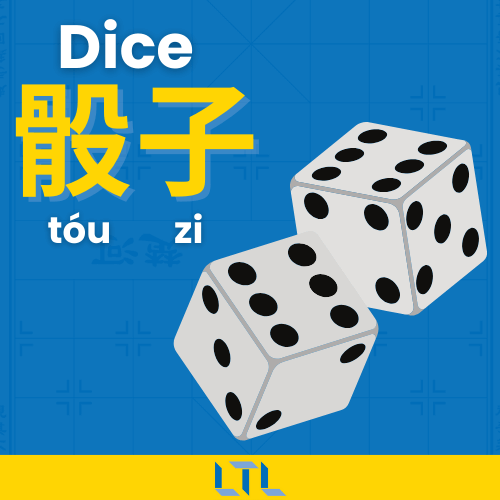
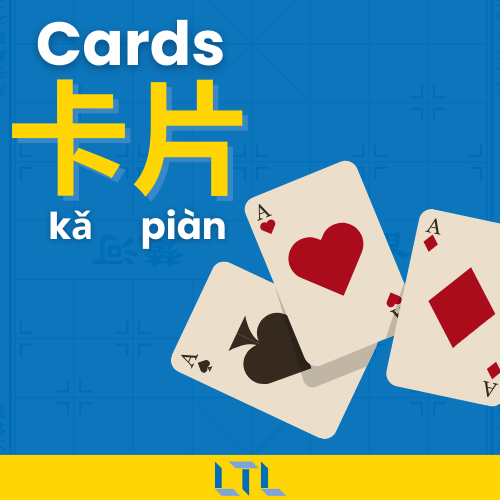
| 中文 | Pinyin | English |
|---|---|---|
| 计分器 | jìfēnqì | Score marker (playing piece) |
| 策略桌游 | cèlüè zhuōyóu | Strategy board game |
| 合作桌游 | hézuò zhuōyóu | Cooperative board game |
| 纸牌游戏 | zhǐpái yóuxì | Card game |
| 玩家一 | wánjiā yī | Player one |
| 玩家二 | wánjiā èr | Player two |
| 轮到你了! | lúndào nǐ le! | It’s your turn! |


| 中文 | Pinyin | English |
|---|---|---|
| 谁赢了? | shéi yíng le? | Who’s won? |
| 我是冠军! | wǒ shì guànjūn! | I’m the champion! |
| 我们是赢家! | wǒmen shì yíngjiā! | We are the winners! |
| 你输了! | nǐ shū le! | You’ve lost! |
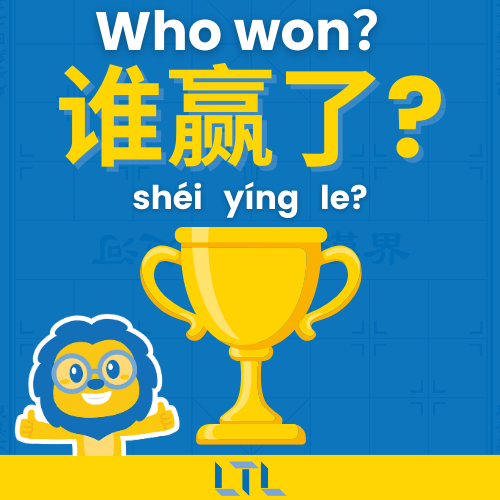
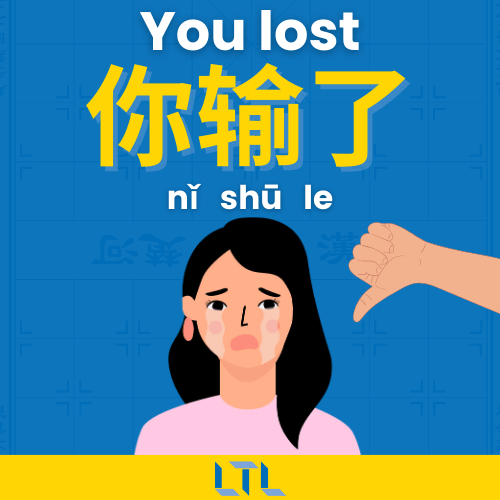
Chinese Board Games || Our Top 5
#1 Settlers of Catan卡坦岛 (kǎtǎndǎo)
The beauty of this game for Chinese language beginners is its simplicity .
To play, you really just need a good grasp of Chinese numbers and the Chinese names for the five valuable resources traded within the game:
| Brick 砖块 (zhuānkuài) | Timber 木材 (mùcái) |
| Wool 羊毛 (yángmáo) | Grain 谷物 (gǔwù) |
| Ore 矿石 (kuàngshí) |
If you don’t have a grasp of Chinese numbers yet, spare us two minutes, and we’ll teach you:
#2 Codenames 行动代号
Codenames is a relatively new game on the scene, and it’s totally based around providing and guessing verbal clues in pairs. Playing the Chinese version is a great way to improve your reading skills.
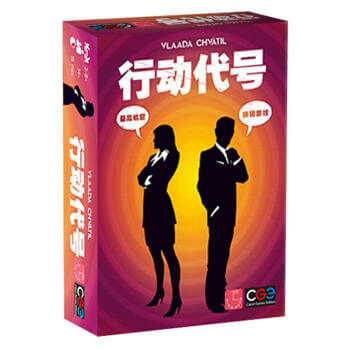
The game can be adapted to suit various levels of Chinese ability, but is only recommended to those who have been studying Chinese for at least a few months.
Upper-beginner / intermediate students will want to select the Chinese character cards they’re comfortable with in advance, and then double check that everyone around the table knows their meanings before the game begins.
If you’re playing in a mixed group of foreign and Chinese friends, you can also try mixing English tiles with Chinese tiles for a bilingual game – most board games cafés in China will provide both the English and the Chinese language versions.
TOP TIP || Once it’s your turn to provide clues to your partner, try referring to the radicals to guide him or her to the right cards – this is a trick which isn’t possible in the English language version!
#3 Carcassonne卡卡頌 (kǎkǎsòng)
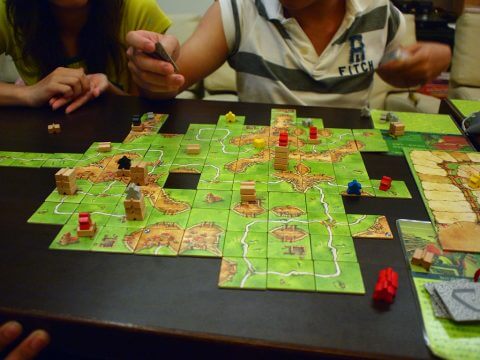
In a game of Carcassonne, the players create the board during gameplay by placing tile pieces into a sort of giant jigsaw.
These tiles show a mixture of medieval landscape features such as walled cities (城堡 chéngbǎo), roads (道路 dàolù), cloisters (修道院 xiūdàoyuàn) and open grassland (草原 cǎoyuán).
The rules of the game are simple, and at its most basic level it can be played with only the most rudimentary Chinese.
For more advanced Chinese learners, use the opportunity to practice your Mandarin debating skills, as you decide where to place your piece.
The game often sparks heated discussions, as players compete against friends to claim the most land.
#4 Citadels 富饶之城
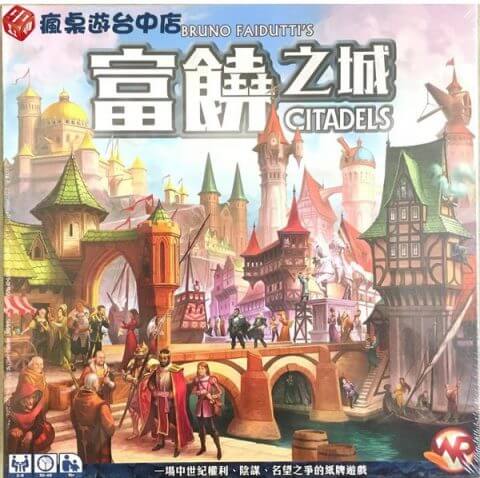
A brilliant game for intermediate and advanced Chinese learners.
The game is centred around role-playing eight different characters, who may choose to trade with, steal from or even murder fellow characters in the course of a game.
The game is quick-moving and you’ll hear the same character names and actions coming up repeatedly throughout the game.
The eight characters in the basic version are the following:
| English | Hanzi | Pinyin |
|---|---|---|
| Assassin | 刺客 | cìkè |
| Thief | 盗贼 | dàozéi |
| Magician | 魔法师 | mófǎshī |
| King | 国王 | guówáng |
| Bishop | 主教 | zhǔjiào |
| Merchant | 商人 | shāngrén |
| Architect | 建筑师 | jiànzhùshī |
| Warlord | 领主 | lǐngzhǔ |
#5 Pandemic 瘟疫危机
For those of you looking for a Chinese language challenge, look no further than a game of Pandemic.
Unlike many Chinese board games, this one is cooperative, meaning that you need to work closely with your friends to “beat the board”. That means a lot of discussion of tactics as you decide how best to cure and prevent the spread of four deadly diseases.
True to its name, the language of the game includes a lot of common medical vocabulary such as outbreak (爆发) and quarantine (检疫).
Although these words may be rare in day-to-day conversations with Chinese native speakers, recognising them could come in very handy one day!
Chinese Board Games || Classics
Now, it’s no secret that Chinese people have always loved getting together with friends and neighbours to play a board game – well before specialist cafés and bars arrived in cities like Beijing and Shanghai.
If you walk through any park or residential area in China on a hot summer evening, you’re bound to come across groups of older people on the pavements crowded around a game of Weiqi (Go), Xiangqi (Chinese Chess) or the favourite among Chengdu locals, Majiang (Mahjong).
Chengdu even has dedicated Majiang parlours, which are fitted out with heaters under the tables to warm patrons’ knees on those colder, drizzly days.
Unlike some modern Chinese board games, these traditional pursuits don’t require the players themselves to speak much.
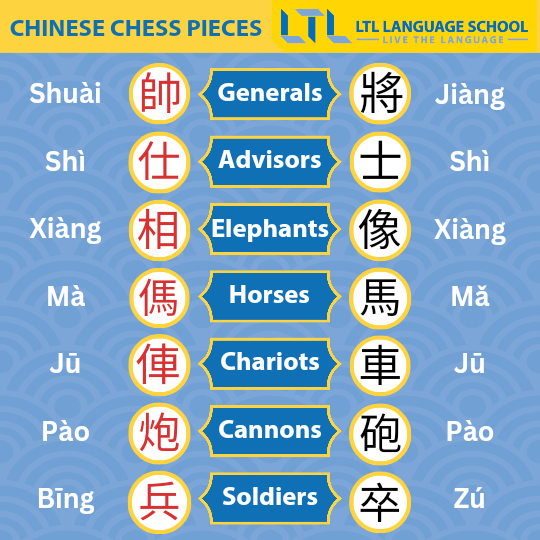
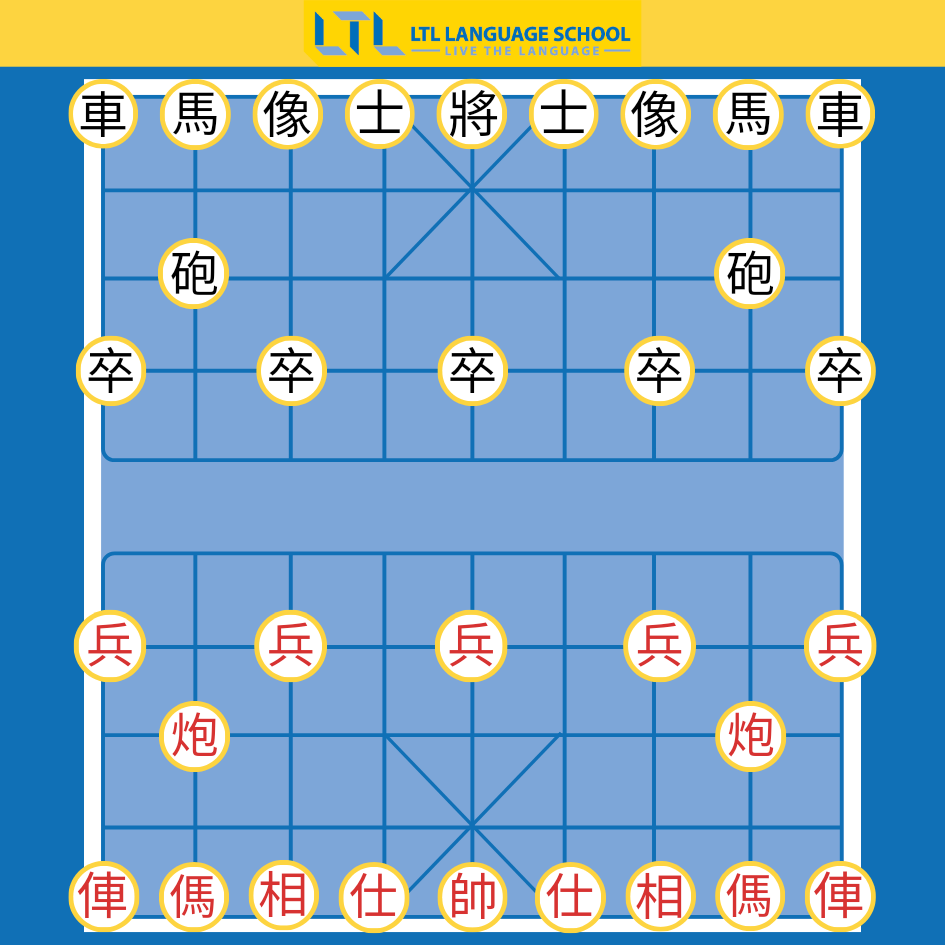
However, games such as Majiang are a real social event, so use the opportunity to meet native speakers and practice your Mandarin Chinese.
Friends, neighbours and even casual passers-by will often back one player and shout out tips and tactics from the sidelines – or use the game as a chance to gossip about the latest neighbourhood news.
If you arm yourself with a basic knowledge of the rules first, there’s no harm in joining the crowd around the board. You’ll be enjoying a tradition that has been maintained in China for literally thousands of years.
As well as the cultural insights you’ll gain, it’s brilliant Chinese listening practice to hear native speakers celebrate and commiserate with their friends. You may even pick up on some local dialect if you make “spectating” a regular habit.
More often than not, a friendly local will be keen to give you their take on the intricacies of the game, and who they think will win.
Below, a quick-fire guide to China’s three most beloved traditional games:
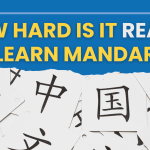
9 Surprising Reasons That Learning Mandarin Isn’t Nearly As Hard As You Think
How hard is it to learn Mandarin? In many ways, it’s a lot more straightforward than other Asian languages and even European languages! Here’s why…
#1 Weiqi (Go)
Weiqi is a two-player board game that originated in China over 5,000 years ago. That’s so long ago, it’s said to be the oldest board game in the world that’s been continuously played to the present day!
Legend has it that this unique strategy game was invented by Emperor Yao (2,255–2206 BC) as a teaching tool to discipline his ‘playboy’ son Dan Zhu.
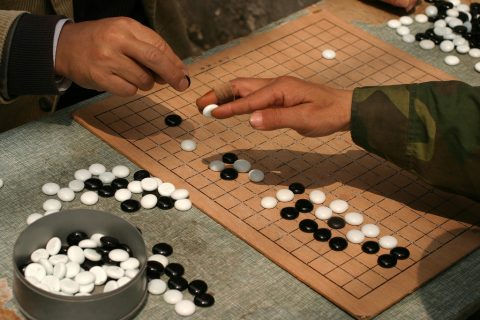
The art of strategically placing the game’s black and white stones soon became one of the four essential skills that ancient Chinese scholars had to master, in order to be considered ‘cultured’.
Today Weiqi’s popularity is still largely centred in Eastern Asia, where there are said to be over 20 million regular players.
DID YOU KNOW || School children in China are often taught to play at school!
However, the best place to find people playing Weiqi is in your local teahouse, or else in People’s Park.
Here’s a handy video guide to the rules of play:
#2 Xiangqi (Chinese Chess)
Literally translating as ‘Elephant Chess’, Xiangqi is the traditional Chinese version of what we know around the world as chess.
The object of the game is the same – capture your opponent’s king, while protecting your own.
However, just to make things a bit more tricky, the Xiangqi board has a “river” running directly between you and your opponent.
Only certain chess pieces can cross the “river”, and crossing it often changes their movement and abilities.
Another major difference – Xianqi has cannons, chariots and elephants for chess pieces, which I think we can all agree are way cooler than measly bishops and knights.
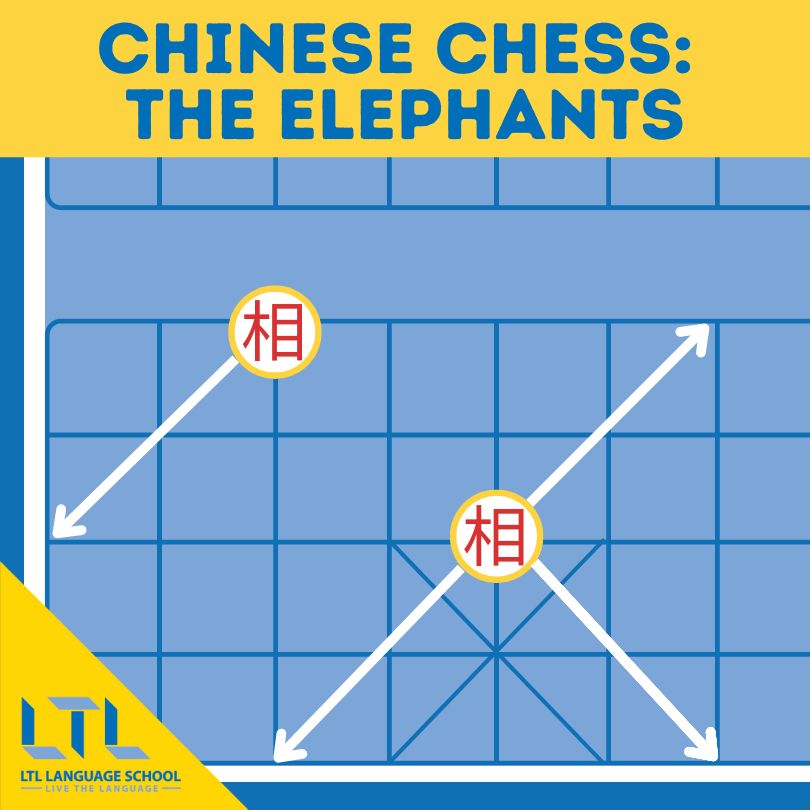
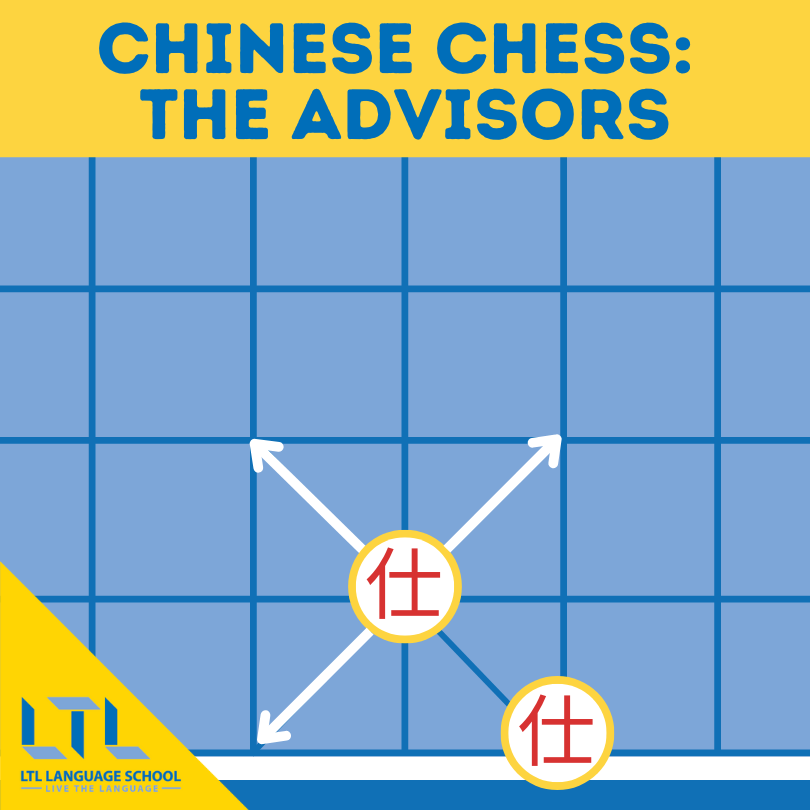
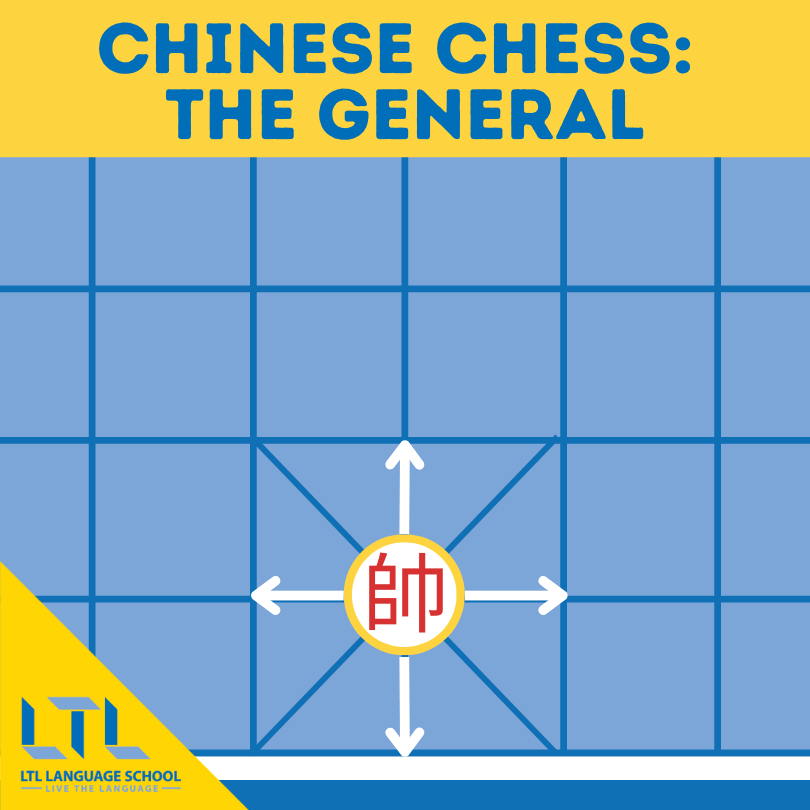
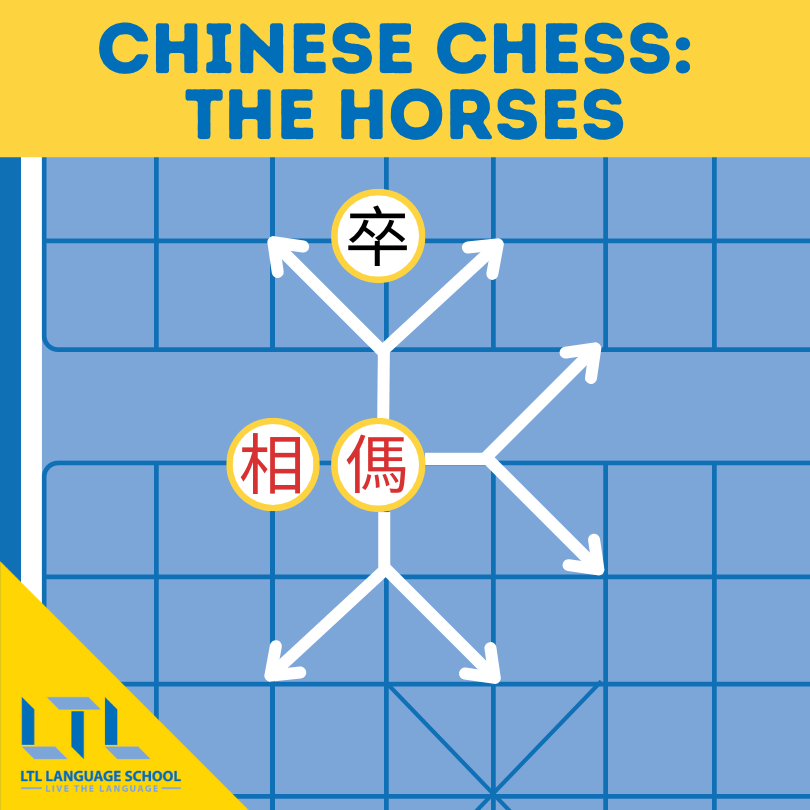
WANT MORE? If you want to learn the rules of Xiangqi in justa matter of minutes – check out our guide to Chinese chess.
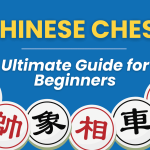
A Beginner’s Guide to Chinese Chess || Mastering the Art of Xiangqi 象棋
Want to give your inner strategist a new challenge? Today, we’ll teach you the Chinese chess essentials, including piece movements and great opening moves
#3 Majiang (Mahjong)
Though not technically a board game – it’s played with tiles directly onto the tabletop – Majiang definitely deserves a mention here!
It’s by far the most commonly played game on the streets of China.
Invented in China during the Qing dynasty, Majiang is most often played between four people – though a public game will usually attract a far larger crowd around the table!
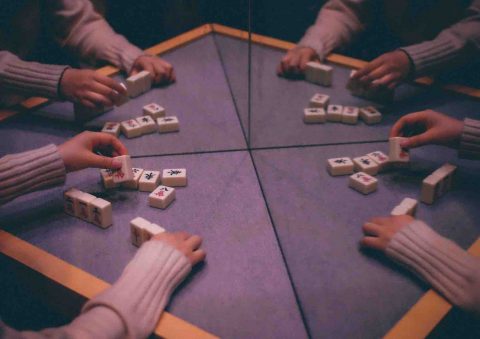
There are plenty of detailed English-language guides online if you want to get your head around the rules. In essence though, it’s based around drawing and discarding tiles showing various Chinese characters and symbols in order to make a particular “set”.
Ready to learn another Chinese board game… Great
This video claims it can teach you the basics in just 2.5 minutes:
There you have it, your ultimate guide to learning Chinese board games and how to play board games in China. Who says learning a language has to be boring!
Chinese Board Games || FAQs
Is Chinese chess than same as international chess?
No, they are quite different.
Just to make things a bit more tricky, the Xiangqi (Chinese word for Chinese Chess) board has a “river” running directly between you and your opponent. You still have to capture your opponents king but only certain pieces can cross the river,
Is Mahjong a Chinese board game?
Yes, Mahjong is a popular board game played in China which involves four people. Find out how to play here.
Where can I play Chinese board games?
Actually there has been a growth in bars that specialise in Chinese board games!
In recent years, Chinese board game cafés and bars (桌游吧 zhuōyóu bā) have been springing up in cities all over China.
What is Mahjong in Chinese?
It sounds similar to mahjong but is actually pronounced 麻将 (májiàng).
Want more from LTL?
If you wish to hear more from LTL Mandarin School why not join our mailing list.
We give plenty of handy information on learning Chinese, useful apps to learn the language and everything going on at our LTL schools!
Sign up below and become part of our ever growing community!
⭐ Download our free ebook, your starter pack of essential Mandarin learning resources!


 Hi, my name is Ilaria. I am from Italy and I am a Student Advisor at LTL. Fancy coming to study with us in China? Drop me a message.
Hi, my name is Ilaria. I am from Italy and I am a Student Advisor at LTL. Fancy coming to study with us in China? Drop me a message. Hi, my name is Mojca. I am from Slovenia in Europe and I work as a student advisor at our Shanghai school.
Hi, my name is Mojca. I am from Slovenia in Europe and I work as a student advisor at our Shanghai school.



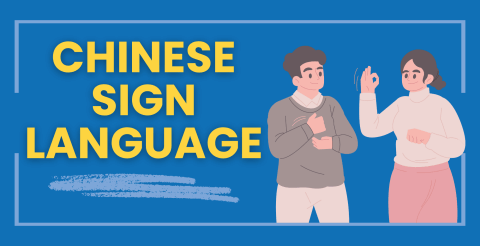
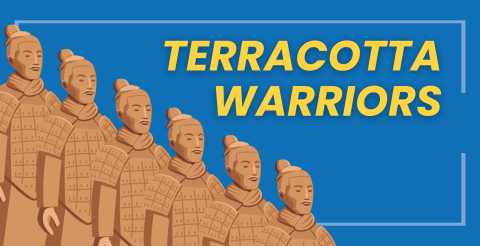
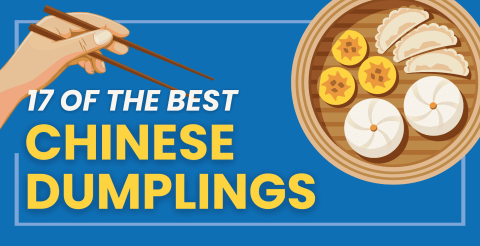



8 comments
Some excellent games here, I went to that bar in Chengdu before! Brought back some great memories reading this!
Lynn
Wonderful to hear this Lynn, hope to see you back in Chengdu one day soon.
LTL
Awesome post, loved reading about these 🙂
We're super happy to hear that Angela 🙂
Love board games, this is a super idea. your content is amazing ltl!
Thanks V, let's hope we can challenge you to a game in China one day!
[…] Games, movies, dinners with friends. We are fully involved in these moments. […]
[…] is a popular park with locals so you can expect to see lots of activity such as dancing, Chinese chess or even some Chinese […]